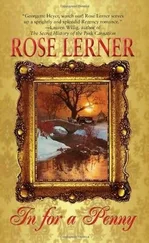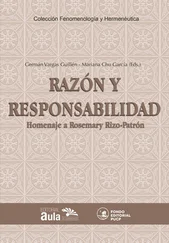“‘I want to tell you something, but I want you to promise you won’t be mad.’
“‘Okay, I promise,’ he promises.
“‘I’m not sick.’
“‘What do you mean?’
“‘I don’t have cancer,’ she says.
“‘You’re in remission,’ he confirms.
“‘No, I’ve never had it,’ she says.
“‘Go to sleep, baby.’
“‘No, I’m serious — I’ve never had it. I wanted to tell you, but things got out of hand.’
“‘Hush,’ he says, a strange feeling coming over him.
“‘I’m serious,’ she says, and something in her voice asserts that she is.
“‘And you’ve been faking your treatment,’ he says sarcastically.
“‘Yes,’ she says.
“‘You get chemo for a fake diagnosis.’
“‘No, I sit in a bathroom stall.’
“‘And Dr. Sing,’ he says, forcing himself to laugh.
“‘That was the name of my doctor in Boston.’
“‘This isn’t funny, Ashley. You sound crazy. You’ve lost thirty pounds.’
“‘I make myself throw up. I have no appetite.’
“He begins to feel desperate. ‘Your hair.’
“‘I shave it. At first I pulled out patches.’
“‘The pills.’ He’s stood up. He’s standing in his underwear by the bed.”
“‘I have Zoloft. I have Ativan,’” the distinguished author said, role-playing Ashley. “‘I have large blue vitamins I put in the old bottles.’”
“Right. He doesn’t want to ask why, to concede the possibility of her lie, but: ‘Why?’”
“‘I felt alone. Confused. Like something was wrong with me.’”
“‘The lie described my life better than the truth,’” I added. “‘Until it became a kind of truth.’” I drained my drink. “‘I would have done the chemo if they’d offered it to me.’”
The distinguished female author looked at me, perhaps trying to figure out if the story was lifted from my life. “Yes,” she decided, “you should put that in the novel.”
A rectangular plate bejeweled with diver scallops was placed before each of us simultaneously. There were tiny slices of what looked like green apple, fine pieces of what was probably an exotic celery. A new wine was being served. The distinguished female author and I were now unabashedly getting drunk. As we ate, I told her the story of my visit to the masturbatorium, and I had her cracking up; we were laughing loudly enough to draw some stares from other tables. For dessert we shared a chocolate tart and each had a large Armagnac.
Outside the restaurant in the false spring air everyone shook everyone’s hand with the particular awkwardness of people who had eaten together but had not spoken. The distinguished male author said to both of us with affected gravity that he was deeply sorry he hadn’t had the chance to ask after our current projects, which he was sure were splendid. With even greater solemnity, I responded, “I’ve long admired your work”; the distinguished female author had to cough away her laughter. Then she and I embraced one another and she said to me, “Just do it all.” When I asked, “Do what?” she just repeated, “Do it all,” and we hugged one another again and then I headed south toward the subway as she and her exhausted-looking husband hailed a cab to take to the East Side. I walked past Lincoln Center, where the well dressed were filtering out of the opera, milling about the illuminated fountain. At Fifty-ninth I took the D back to Brooklyn, repeating to myself in time with the rhythm of the train: Do it all, do it all.
When I got out of the train I walked to Alex’s apartment and rang the bell, which I almost never did — normally I’d just text her that I was downstairs — and she descended to let me in. She was a little dressed up, either because she’d had a job interview earlier that day or because she’d been on a date, and she looked particularly pretty to me in her liquid satin and Venetian wool; I said hello and focused on appearing sober as we ascended the stairs. When we got inside the apartment she asked me how the event was and, instead of answering, I wrapped my arms around her and drew her against me and kissed her on the mouth and tried to find her tongue. She pushed me away hard, laughing, coughing, wiping her mouth, and said: “What the fuck are you doing? Are you drunk?” “Of course I’m drunk,” I said, and tried to approach her again, but she held out her arms to stop me. “Seriously, what are you doing?”
“I’m doing it all,” I said meaninglessly, and then I said: “I’m not going back there to jack off into a cup every month for two years. Okay, so my sperm are a little abnormal, but it doesn’t mean I can’t get you pregnant.”
“What do you mean, your sperm are abnormal?”
“It’s normal to have abnormal sperm,” I said, as if she’d insulted me, and she laughed. I sat down on the futon and beckoned for her to join me there and thought: This is going to be fine; after all, we made out a few times in college. She did come toward me, but only to pick up one of the embroidered Indian pillows from the futon, which she swung into my face. “Go to sleep, you fucking idiot, we are not having sex.” Stunned, I opened my mouth to say a lot of things — about joke cycles, the origins of poetry, correspondences — but instead I stretched out and, placing the pillow over my head, not under it, said: Good night. Later she told me I’d kept her up by trying to recite “High Flight.”
* * *
Dear Ben , I put down, I too found it a pleasure meeting you, albeit briefly, in Providence, though in such a crowd little conversation was possible. But to put a face to the name, as they say, if they still say that, and I hope there will be another occasion soon to be in each other’s company .
I deleted the “I too,” just made it “It was a pleasure,” and started a new paragraph: I remember writing William Carlos Williams in, what, 1950, and feeling the letter was very much an intrusion. I don’t mean to imply that I’m to you what Williams was to me then, only to sympathize with, to remember how I shared, the worry you expressed that reaching out might be construed as overreaching. But it isn’t, and you’re certainly not, and anyway how else is one to find one’s contemporaries, form a company? How else to locate the writers with whom one corresponds, both in the sense that we are corresponding now, and in that more general sense of some kind of achieved accord, the way we speak of a story corresponding with the facts? You no doubt know Jack Spicer’s use of that term in all its weird possibility, how he corresponded with the dead, took dictation. And of course we have Baudelaire’s sense of “Correspondances.”
The author could go back later and make sure he wasn’t overusing Creeley’s signature words. I’d reread the one or two matter-of-fact messages we had actually exchanged, would look again at his Selected Letters.
I also recall here that letter sent in my midtwenties because I was writing like you about starting a little magazine, articulating insofar as I could its “general program,” which of course involved expressing my discontent with the magazines then current. You ask if “we need another,” a good question, but I wonder how much the “we” should be its subject. Of course the magazine is a thing one hopes has its circulation, however small, has its influence, however hard to measure, but it is also the instrument through which your own sense of the possibilities of the art will be forged, tested. It seems to me now evident that the best magazines come from editors who themselves “need” the thing to exist, and out of the singularity of that need a magazine of some possible public use arises.
Читать дальше










